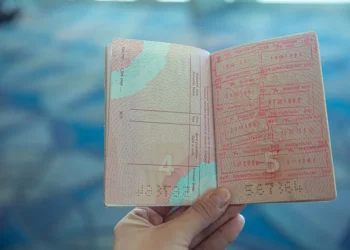The Impact of Political Unrest on US Tourism: A Shift from Leisure to Business Travel
The US tourism industry has faced significant challenges this year, with leisure travel experiencing a sharp decline. As political unrest continues to influence global perceptions, the dynamics of travel have shifted notably, leading to an increase in business travel at the expense of leisure trips.
The Decline of Leisure Travel
Leisure travel, once a robust segment of the US tourism market, has seen a troubling dip. Factors such as safety concerns stemming from political instability and economic uncertainty have led many potential travelers to reconsider their vacation plans. Families or individuals who might have previously booked trips for relaxation and exploration are now opting to stay closer to home, prioritizing their safety and financial stability.
Business Travel on the Rise
In contrast, business travel has surged amidst these changes. As companies strive to maintain operations and seek new opportunities in a shifting landscape, professionals are increasingly hitting the road for meetings, conferences, and networking events. This unexpected rise in business travel provides a silver lining for the tourism sector, offering a counterbalance to the downturn in leisure tourism.
The Broader Implications
The shift from leisure to business travel raises significant questions about the future of the US tourism industry. While it’s positive that business travel is thriving, the decline in leisure travel could have lasting impacts on many sectors, including hospitality, entertainment, and local economies that benefit from tourist spending.
Travel agencies, hotels, and other stakeholders in the tourism industry must adapt to these changing dynamics. Focusing marketing efforts on business travelers while also finding ways to reassure leisure travelers about safety and value could be key strategies moving forward.
Looking Ahead
As the situation evolves, it’s crucial for the tourism industry to remain agile. Monitoring trends and understanding the factors influencing travel decisions will be important in navigating the current landscape. Moving forward, a balanced approach that caters to both business and leisure travelers will be essential for revitalizing the US tourism sector.
In conclusion, while the current state of US tourism presents numerous challenges, it also offers opportunities for innovation and adaptation. By understanding the shifts in travel behavior, stakeholders can better prepare for a more resilient future in the industry.









